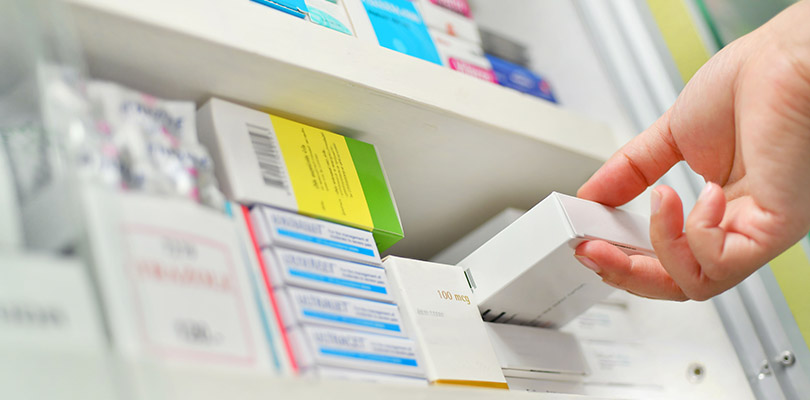Ulcerative Colitis Treatment Options
Ulcerative colitis is a chronic inflammatory disease that affects your bowels. It can cause significant pain and discomfort, weight loss, diarrhea and if untreated, death. While most cases are generally mild or moderate in severity, it can quickly lead to a reduction in the quality of your life.
If you have been diagnosed with chronic ulcerative colitis, then you should work with your doctor to identify the best ulcerative colitis treatment plan for you. We’ve compiled some of the most common treatment options so that you can be prepared for the suggestions that your physician can make.
Treatments for Ulcerative Colitis
Treatment will typically involve one of two options, medications or surgery. Usually, your doctor will suggest medication first before scheduling you for an invasive medical procedure. Keep on reading to learn more about the available chronic ulcerative colitis treatment options.
Mesalamine
Mesalamine is generally the first prescription your doctor will write for cases of mild or moderate ulcerative colitis. It is designed to treat some of the active symptoms of your disease and helps keep ulcerative colitis in remission.
These pills are available in capsule or suppository form. It may be prescribed for up to four doses per day. Many individuals taking this medication see results within four weeks.
Corticosteroids
These medications are commonly called steroids. They are available in oral or suppository form. Several different types of steroids work in different ways.
- Prednisone, hydrocortisone, and methylprednisolone all work by suppressing the entire immune system to fight the effects of ulcerative colitis. Due to potentially severe side effects, these medications are typically used for moderate or severe cases. These medications should be discontinued as quickly as possible with direction from your doctor.
- Budesonide can be taken for less severe cases and has fewer serious side effects. This medication is available for oral or rectal use. The body processes budesonide differently than other corticosteroids when taken orally and results in minimal complications. This makes the oral tablet or pill the preferred option.
In severe cases, ulcerative colitis may require hospitalization in which corticosteroids can be introduced through IV medication. As soon as your doctor has achieved their desired effect, they will begin to taper off your dosage. Corticosteroids cannot be stopped abruptly because it will affect your body’s production of cortisol.
General side effects of corticosteroids are:
- Osteoporosis
- High blood pressure
- Increased facial hair growth
- Acne
- Mood or behavioral issues
- High blood sugar
- Weight gain
- Infection
If you experience any of these conditions, you should discuss your concerns with your physician.
Immunomodulators
These medications are immunosuppressants that reduce inflammation at the source. This medication class is typically reserved if previous drug therapies have not been successful. Patients may have to wait for several months to begin seeing results.
Immunomodulators include azathioprine, mercaptopurine, and cyclosporine. Side effects include an increased risk of developing an infection.
Biologics
Biologic medications work through fighting a specific protein that is part of your immune system’s response. These medication types are reserved for severe cases or when other therapies have been unsuccessful.
Biologics are made from proteins that are found in living organisms. This medication can increase the risk of infection. Patients often find that if the medication works, that the benefit outweighs the risks.
Antibiotics
Antibiotic medications are a broad class of medication that are used to treat infections. In the case of ulcerative colitis, antibiotics may be prescribed to combat abscesses, a colon infection or fight a fever. Antibiotics may also be used to treat fistulas around the anal or vaginal canals.
Surgery
If using medications to treat ulcerative colitis are unsuccessful, or the condition becomes too serious, your doctor may suggest surgery. If you opt for this route, your surgeon will likely remove the entire colon (lower intestine) and rectum. They will then connect the end of the small intestine to a small incision that is made through the abdomen. A small bag will be attached to this hole to catch the waste material. It is also possible that your surgeon will insert an internal pouch that allows waste to be passed through the anus.
Surgery is currently the only option that cures the condition. Medicinal options can only put the disease into remission with the potential of later incidents. Your chances for colon cancer increase if you have ulcerative colitis for more than eight years. Chances may also increase if you have experienced moderate or severe bouts with ulcerative colitis.
Overview
If you believe that you have ulcerative colitis, schedule an appointment with your physician. Bring your concerns and questions to their attention to make sure that you receive an accurate diagnosis.
You should also discuss your ulcerative colitis treatment options with your physician. Many people can live comfortable and normal lives when they are aware of and active in their treatment plans.
